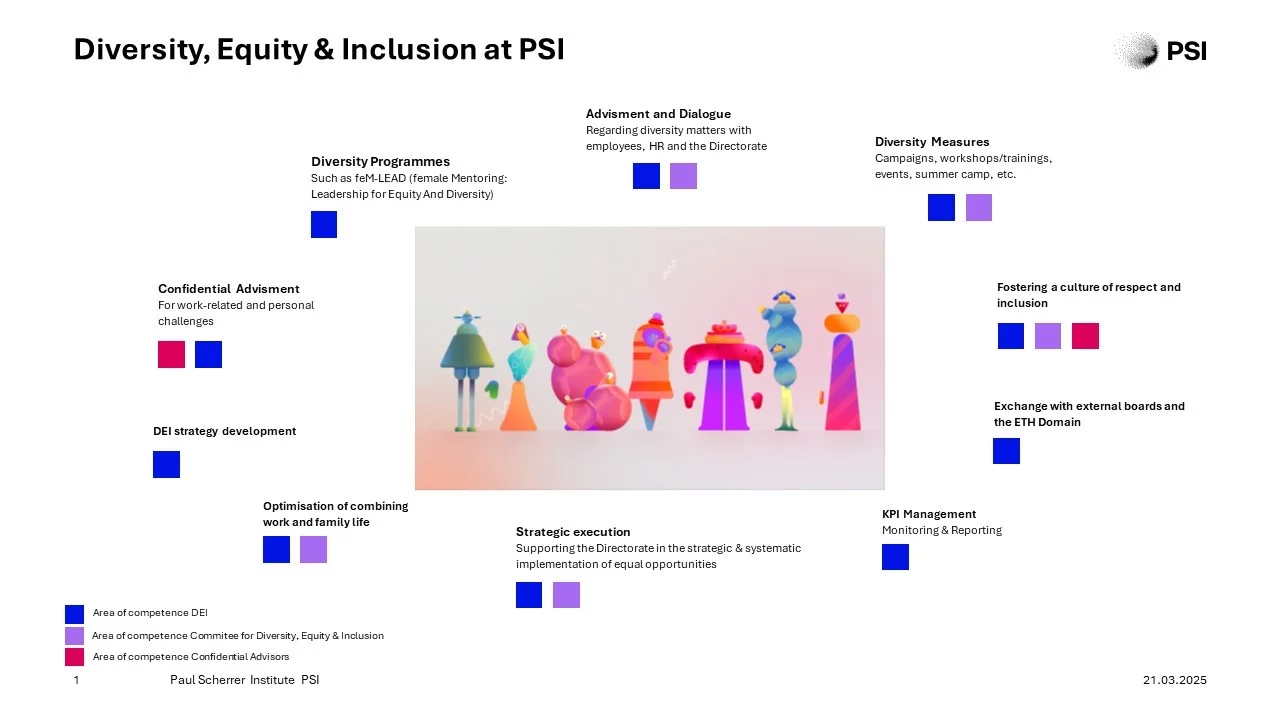At PSI, we live diversity, and we want to be known and recognised for our exemplary inclusion and equity policy. That is why we follow a mission statement for diversity, equity and inclusion. The official mission statement can be found here.
The Committee for Equal Opportunities together with the Center of Competence for Diversity & Inclusion has the mission to support the directorate in ensuring equal opportunities for all employees to increase their motivation and performance.
The implementation of equal opportunities means: Nobody shall be disadvantaged because of their origin, gender, age, language, social position, way of life, their religious, ideological or political convictions or because of a physical, mental or psychological impairment.
PSI's Committee for Equal Opportunities contributes towards a corporate culture based on equality of opportunity. For this purpose, it is in exchange with PSI employees, human resources management and the directorate. Together with other units at PSI, it is dedicated to prevent discrimination, mobbing and sexual harassment and offers contact points for employees who feel harassed (persons of trust). It is also dedicated to optimize the reconciliation of work and family life. The committee also supports PSI in measures that help increase the proportion of women in leadership positions, research and technology.
Action Plan Diversity, Equity, and Inclusion
The Action Plan Diversity, Equity, and Inclusion 2025-2028 is oriented towards the Mission Statement on Diversity, Equity, and Inclusion.
Tabelar Overview of Goals and Main Measures:
| Goals | Indicators | Main measures |
|---|---|---|
| A: Increasing the proportion of women in core areas of PSI across all levels |
|
|
| B: Promoting the recruitment and employment of people with disabilities, chronic illnesses, and neurodivergences |
|
|
| C: Supporting good cooperation in culturally diverse and international teams |
|
|
| D: Promotion of inclusion topics at PSI and in leadership practice |
|
|
| E: Further anchoring of DEI topics at PSI |
|
|
Further Information
Contact
Committee for Diversity, Equity & Inclusion
diversity@psi.ch
(Please note: E-Mails to this address reach all the committee members.)

